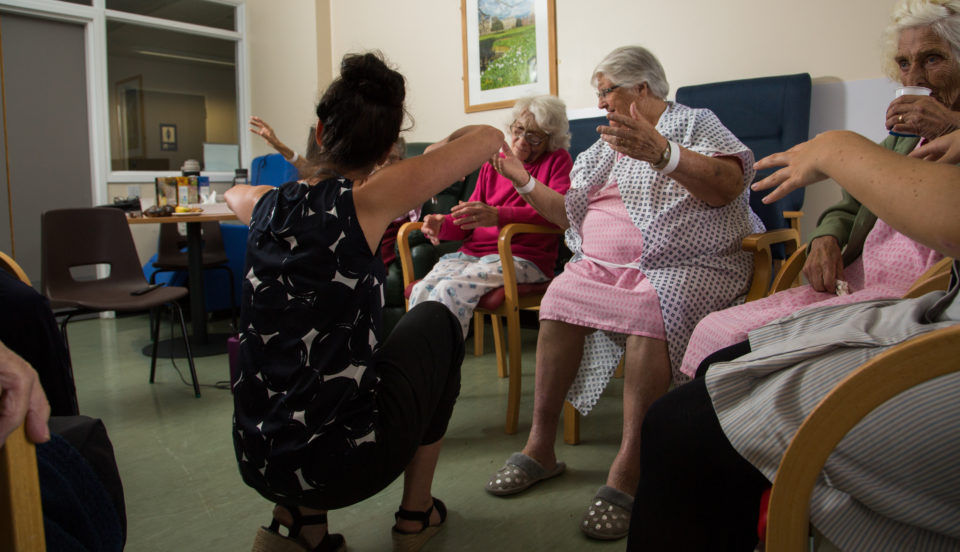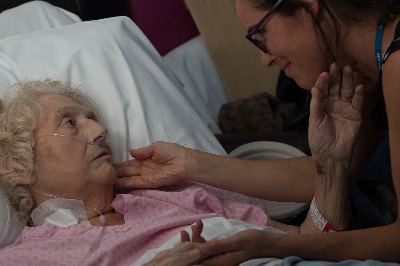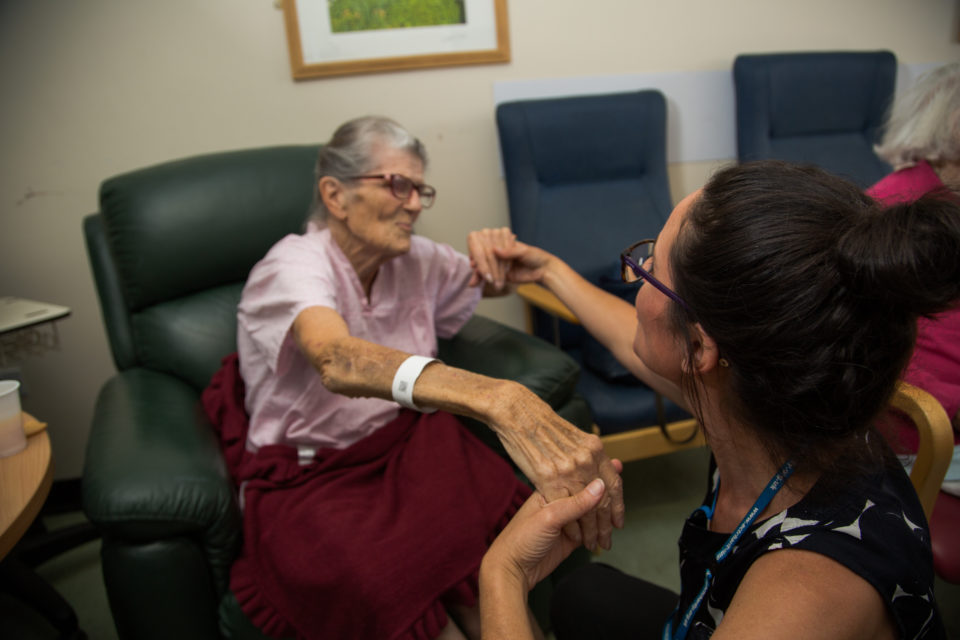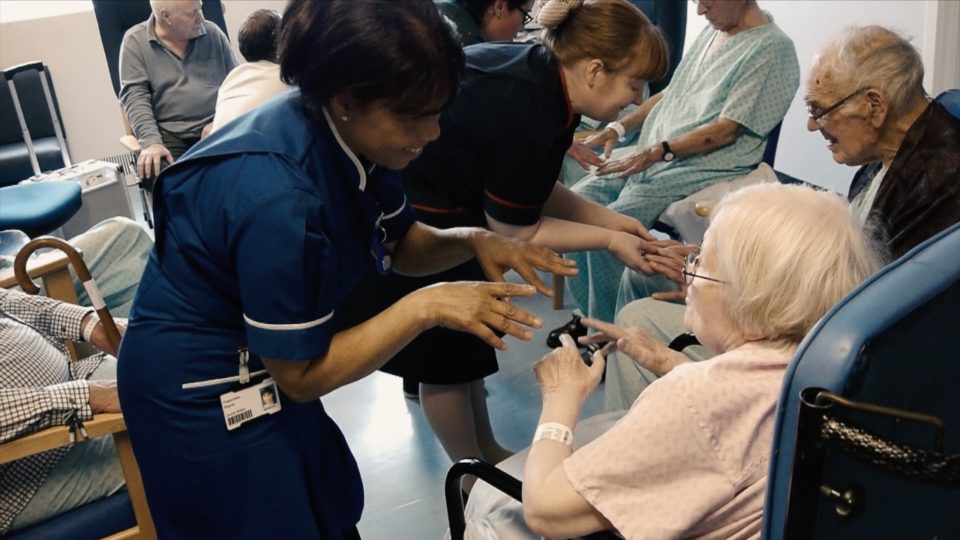“It goes in our mind & heart, feeling so good, keeping you peaceful & quiet. You forget all the other parts and calm down inside.” Hospital patient.
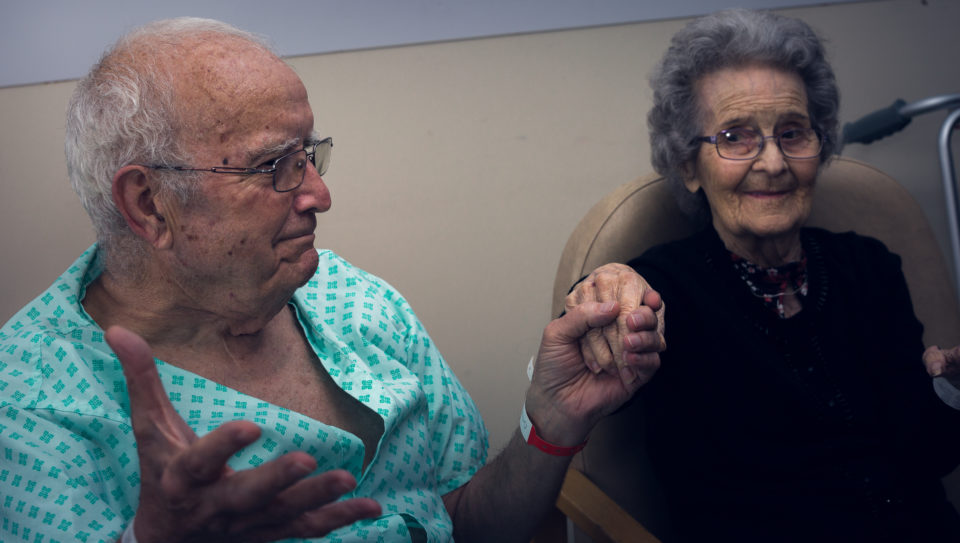
Dance for Health is Cambridge University Hospitals’ (CUH) flagship arts programme. Now an international leader in the field of participatory dance within hospital settings, the programme was piloted in 2013 with the aim to improve the hospital experience for older patients. In the past 3 years alone, DfH has had more than 3000 participant visits.
Filipa Pereira-Stubbs is the lead dance artist; her vision was to bring the benefits of dance directly to busy hospital wards. Filipa devised and delivered movement sessions that addressed the multifaceted needs of the patient, as well as making sessions accessible to medical staff. Key to the success was the need to build bridges between medicalised perspectives on the body, and a wider somatic approach. Together with a Falls Prevention Nurse, who was seconded onto the programme for two years to support ward integration, DfH became a regular weekly intervention on six different adult wards.
As well as integrating into the hospital’s clinical culture/s, Dance for Health is also fully rooted within the wider multi-arts programme at CUH. Managed by Natalie Ellis (Head of Arts), Dance for Health has a strong profile: it is regularly shared through hospital communications channels, presented at staff training and conferences, and championed by our executive directors who truly understand and value the work.
I found it exhilarating and friendly. Very welcoming, supportive… and there was empathy for wherever we were with our bodies.
Yvonne , Neurohabilitation ward
Last time I danced was on the 7th of January. The next morning I woke up paralysed from the waist down. This is the 1st time I’ve moved since then. (nearly three months later).
You get to know someone a little bit more holistically; you get so robotic and routined doing every day tasks that you forget that a person is an individual and they respond individually – in the room when you put the music on you see how they all respond differently.
Sheila, Diabetes & Endocrinology Ward
You get to know someone a little bit more holistically; you get so robotic and routined doing every day tasks that you forget that a person is an individual and they respond individually – in the room when you put the music on you see how they all respond differently.
Louise Health Care Assistant
Films
- It’s Something Different
- Conversations
- In my Pyjamas
